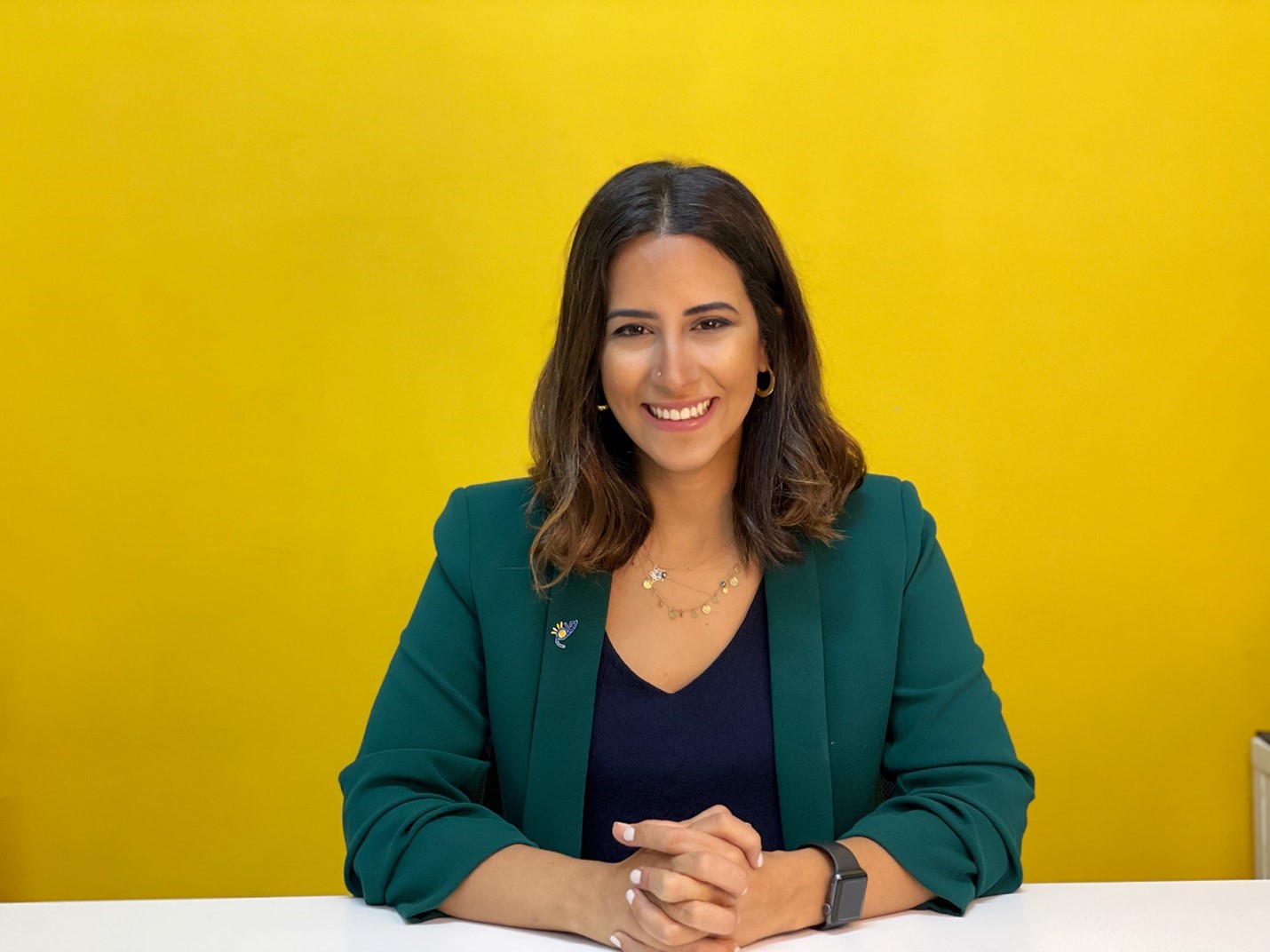In the words of Amena El-Saie says, “I believe that everyone has a role to play in enhancing the inclusion of all persons with disabilities in all communities”
Date:

Amena El-Saie, co-founder and CEO of "Helm". Photo: Courtesy of Amena El-Saie.
Amena El-Saie, 31, is the co-founder and CEO of “Helm”, which is a social enterprise that aims to act as a catalyst in ensuring effective and sustainable inclusion of Persons with Disabilities in the workplace. Helm is one of the key partners of the School of Global Affairs and Public Policy (GAPP) Executive Education Programme of the American University in Cairo (AUC), which is responsible for delivering employability skills and job placement services under the framework of the UN Women-UNIDO Joint Programme “Women’s Economic Empowerment for Sustainable and Inclusive Growth in Egypt” - "Rabeha” that is implemented in partnership with the National Council for Women (NCW) and the Ministry of Trade and Industry (MOTI), and the Micro, Small and Medium Enterprises Development Agency (MSMEDA), with the generous support of Global Affairs, Canada (GAC).
Through its partnership with the AUC GAPP Executive Education Programme, Helm will provide multiple advisory and training services to ensure that all training activities under this programme considers the specific needs of women with disabilities who will receive employability skills training and career guidance. We talked to El-Saie to learn about her professional journey as a young leader in the development sector and learn about Helm’s objectives from this collaboration.
“In 2011, when I was a university student, one day I was hanging out with my friends, and we were discussing incidents in our lives that made us understand some of the challenges that some persons with disabilities face in their lives. After this discussion, Ramez Maher [Helm’s co-founder] and I asked ourselves, “what can we do to address some of the challenges that persons with disabilities face in our community?” and this was how the idea behind “Helm” was born as a students’ project and eventually as a dedicated social enterprise. Today, and after years of trials and errors, we are one of the most influential social enterprises in Egypt and the Middle East and North Africa region that is dedicated to this cause.
As a young woman who is a co-founder and a CEO of an influential social enterprise that deals with a multitude of private, public, and civil society entities, it is part of my life to confront cultural expectations of how a woman should behave. Sometimes I feel that I am not taken seriously by some interlocutors, but the moment I start discussing work, they start to listen.
By default, any added stress on society impacts persons with disabilities more profoundly than the rest of the society so imagine adding a pandemic to their challenges. Due to COVID-19, all of our activities were put on hold, but we didn’t give up. Ramez [Helm’s co-founder], the team and I were determined to continue our activities through online platforms, especially that we learned that there is a great gap in online services for persons with disabilities not only in Egypt but the whole Middle East and North Africa region. Resilience and adaptability were key to be able to successfully respond to such difficult and unprecedented challenge. So far, our online training strategy is working well, but we are also facing challenges in reaching some of our beneficiaries due to digital illiteracy and connectivity issues.
We are now partnering with the School of Global Affairs and Public Policy (GAPP) Executive Education Programme of the American University in Cairo (AUC) to provide employability services and training for women with disabilities. We are very happy with is collaboration because it will allow us to ensure the inclusion of women with disabilities in this large women economic empowerment programme and give them a better chance to enter the job market. We have worked with AUC all the step of the way to make this happen, from introducing them to the different kinds of disabilities and their support to tailoring and customizing the training material to fit and successfully reach the different disabilities One of our main goals from this collaboration is to use this intervention as a learning model for the development community as this is the earliest intervention of its kind in Egypt.
Women with disabilities are among the most vulnerable groups in the society as they don’t only face challenges as a result of their disabilities, but they also face gender-based discrimination from the mainstream society and culture. To address the challenges that women with disabilities face, we need to work on all fronts so that the inclusion of women with disabilities become the norm and is considered in every single development intervention.
My advice to everyone who wants to help in our cause is to never make assumptions about the needs of people with disabilities. Instead of making assumptions about their needs, ask questions and educate yourself. I believe that everyone has a role to play in enhancing the inclusion of all persons with disabilities in all communities.
Read in Arabic.